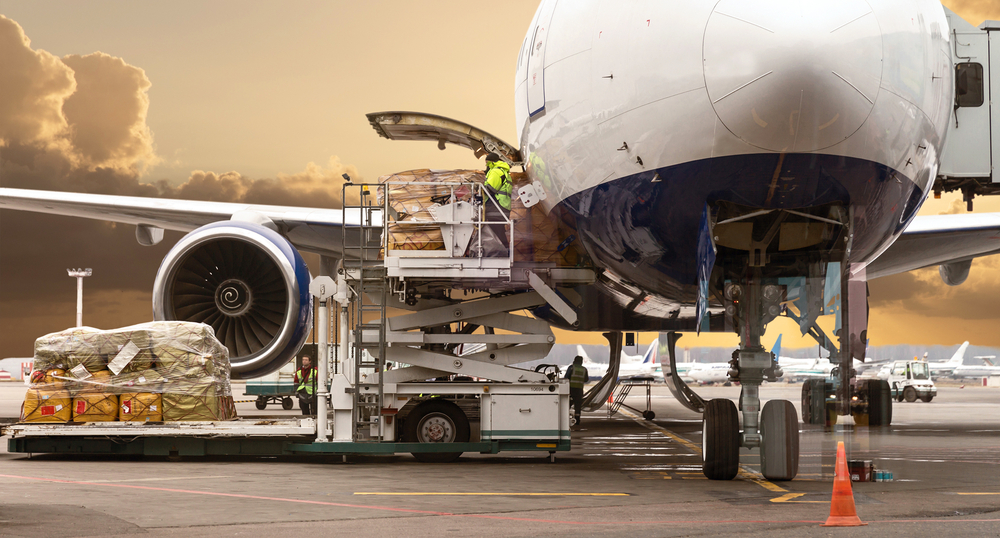Supply chain spotlight: 2021 UK air cargo review
05 / 01 / 2022

Copyright: Shutterstock
2021 proved to be a vital year for the air cargo industry; ongoing sea shipping disruption saw many companies utilise airfreight as a quick and reliable way to transport goods, with airfreight prices soaring to two-and-a-half-times higher than pre-pandemic levels. Alongside soaring demand, Brexit and decarbonisation continued to remain challenges for the sector, as well as the return of passenger travel. In this article, I will examine the key challenges faced this year.
Passenger travel and airfreight are intrinsically linked. Prior to the pandemic, bellyhold cargo at Heathrow Airport accounted for around 60% of UK air freight volume, with the air cargo industry typically representing around 12% of airlines’ revenues on average.
COVID-19 therefore had a major impact on air cargo, following the reduction in passenger travel. As the industry looked to recover in 2021, the easing of restrictions were welcomed; especially when this meant long haul travel was reinstated. These routes are vital, with more than 30% of total airfreight volumed shipped on US routes.
Air travel is a key enabler of trade between the UK and the US, which was worth an estimated £196bn in 2019. The easement of restrictions was therefore encouraging for sector, with internet searches for flights between the two countries taking off; British Airways Holidays saw an increase of nearly 700% for searches to destinations including New York, Los Angeles, and Miami.
However, while the steady return of passenger travel throughout 2021 was very much welcomed by both the passenger and airfreight sectors, at the time of writing, the latest COVID-19 variant – Omicron – once again causes further uncertainty.
Throughout 2022, Logistics UK will continue to work with members to do all it can to support the sector, and will call upon government to continue supporting the vital industry that contributes £7.2bn to the UK economy.
Fifth freedom

Brexit had a significant impact on the air cargo industry. Photo: Pixabay
Brexit changed the way freedoms of the air – the fundamental traffic rights that provide air access – work in practice. And while the first four freedoms – those that allow airlines to fly over airspace, embark and disembark passengers and cargo to, from, and within a given state – were confirmed in the UK-EU free trade deal, the fifth freedom that allows a plane travelling from one country to stop off in a second country, unload cargo and then travel onward to a third country, was not included in the deal.
As a result, Logistics UK urged the UK Government to ensure air cargo operations continued to have access to all EU states under fifth freedom rights and negotiations between the Government and EU members continue.
In March 2021, Logistics UK submitted its response to the government’s consultation on extending the current provision for night flights until 2024, a move strongly supported by its members.
Prior to the pandemic, the majority of air cargo goods were transported via the belly hold of passenger airlines and while long-term recovery across the passenger sector remains uncertain, night flying remains crucial.
Nearly half of express airfreight is flown during the night period to enable time-sensitive, next day deliveries to arrive when due. The regime provided a lifeline for air cargo operations, ensuring that businesses and the public continued to have access to vital products and goods, including medical supplies and vaccination.
In addition to its support for the extension of the night flying regime until 2024, Logistics UK has also urged government to extend the regime for a further year until 2025. With the aviation sector not expected to fully recover until 2024, an additional 12 months would provide much needed certainty to air cargo operators.
Decarbonisation focus
With the release of the Government’s Transport Decarbonisation Plan (TDP), and the UN Climate Change Conference (COP26) held in Glasgow in November, decarbonisation has remained a key focus throughout 2021.
Crucially, within the TDP, the Government stated that it will ‘kick-start’ commercialisation of UK Sustainable Aviation Fuel – as well as consult on a Sustainable Aviation Fuels Mandate – and support the development of new and zero-carbon UK aircraft technology, through the Aerospace Technology Institute (ATI).
Under current UN timelines, at least 10% of fuel used in global aviation should be sustainable by 2030. In September 2021, the University of Sheffield announced its plans to build a centre that will lead research, innovation and commercial testing of SAFs.
A huge step forward for aviation, it will be the first of its kind in Europe with the facilities to test, validate and certify new types of these fuels, and will help producers to bring their products to market as quickly as possible to help with the industry’s decarbonisation efforts.
Logistics UK looks forward to seeing the developments made in this throughout 2022 and also looks forward to participating in the consultations announced in the TDP, including the Jet Zero strategy, which will focus on the steps needed to reach net zero aviation emissions by 2050, and targeting net-zero emissions for UK domestic aviation by 2040.
Logistics UK has worked with members and government on these key challenges throughout 2021 to achieve the best possible results for the sector, and will continue to do so as these issues are set to remain a key focus for 2022.














